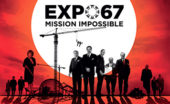Molly Minturn - My family is heartbroken to share that my father died in surgery on Monday, Feb. 10. It…
Wednesday Night #1725
Written by Diana Thebaud Nicholson // March 25, 2015 // Wednesday Nights // Comments Off on Wednesday Night #1725
Alex brought up the latest news on the Germanwings flight 9525 from the recovery of the black box. It seems a pilot was locked out of the cockpit (Airbus, like other plane manufacturers, made cockpits harder to enter after 9/11) and tried to break the door down. No sound from the copilot, who might have suffered a heart attack.
P R E L U D E
So many things on our minds this week and hard to link them all together with any kind of a common thread, so we are opting for a simple listing.
Lee Kuan Yew has died
As Pranay Gupte writes in the World Post:
“… with [the] demise [of Lee Kuan Yew], modern Asia has lost all of its postwar political wizards, men and women who carved entire countries from the clangor of colonial rule or from disputes with neighbors.
They were men and women who fought for independence, often at grave risk to themselves. They gave shape to their respective polities. They imprinted their special stamp of governance — democratic or dictatorial — on the nations they helped create.
They are all gone now, felled by old age or assassins’ bullets: India’s Mahatma Gandhi, Jawaharlal Nehru and his daughter Indira Gandhi; China’s Mao Zedong and Deng Xiaoping; Indonesia’s Soekarno and Suharto; Sri Lanka’s Solomon and his wife Sirimavo Bandaranaike, and Junius Richard Jayewardene; Pakistan’s Mohammed Ali Jinnah; Bangladesh’s Sheikh Mujibur Rahman; and Malaysia’s Tunku Abdul Rahman.
Each was a political titan, of course. But Lee Kuan Yew was arguably the only one of this galaxy of giants who lived to see his nation transformed from a third world country into one of the world’s wealthiest one[s].”
Most important in this fine eulogy, we believe,”is Harry Lee’s emphasis on a society with 100 percent literacy. And that emphasis also led to broadening the notion of what many Singaporeans called the “literacy of governance.” (Lee Kuan Yew’s Legacy: The Singapore Model of Clean Governance)
Sadly, it is not only Asia that no longer can boast of ‘political wizards’ aka statesmen.
Close to home – and to our hearts – is the dispiriting news that the Société du Parc Jean Drapeau (aka the Expo islands) has mismanaged the contracts that were to have restored some of the areas that have been allowed to deteriorate disgracefully since the glory days of 1967 and readied them for a modest celebration of the 50th anniversary of Expo 67 – an anniversary that is almost forgotten in the enthusiasm for Montreal’s 375th birthday and of course, Canada’s 150th. Coderre loses confidence in head of Société du parc Jean-Drapeau — mayor says the city will examine the possibility of cancelling four contracts linked to the renovation of Jean-Drapeau Park following a scathing report tabled on Monday by the municipal inspector general.
In a not-unrelated news item, our OWN Peter Trent deplores the way in which municipal contracts are let – don’t miss the front-page Gazette story ‘Bait-and-switch’ commonplace in municipal contracts, Peter Trent says.
The race is on for the presidential elections now that Ted Cruz has made it official. We hope profoundly that more credible and less extreme candidates will soon follow, however, his announcement is good news for Hillary’s camp who are gleefully rubbing their proverbial hands. Meanwhile fluctuations in Canadian polls continue. Chantal Hebert’s assessment of the Liberals’ chances in Quebec ends with this devastating comment “a just-produced string of Liberal radio ads [is] so devoid of local flavour that if they were bagels, no Montreal shop worthy of its name would admit to having baked them.”
The Fallout from the reelection of Netanyahu – how long will his unwise words in the last hours of the campaign be remembered? Will he really be able to walk them back as he is trying so hard to do? [Netanyahu Apologizes; White House Is Unmoved]
World Water Day on Sunday was marked by the publication of a report stating that either nations alter their use of water resources or supply will only meet 60% of demand in 15 years. Fifteen years isn’t a very long time. Meanwhile, the City of Sacramento (California) is battling with Nestlé over the company’s draining California aquifers, from Sacramento alone taking 80 million gallons annually. Nestlé then sells the people’s water back to them at great profit under many dozen brand names. Are we ready for a shift in thinking and behavior regarding the craze for bottled water in all those throw-away plastic bottles?
Suggested reading: This World Water Day, a Recovery Plan Is More Important Than Ever “Our collective abuse of water has caused the planet to enter “a new geologic age” — a “planetary transformation” akin to the retreat of the glaciers more than 11,000 years ago. This is according to 500 renowned scientists brought together in Bonn at the invitation of UN Secretary-General Ban Ki-moon on May 2013. A majority of the world’s population lives within 30 miles of water sources that are badly impaired or running out, the scientists said.”
Lest you think that Canada has ‘unlimited’ water supply, think again about what we are doing to it. A timely reminder is a scathing new report, Blue Betrayal, which charges that Canada is taking its vast freshwater resources for granted, wrecking them in the process. It also warns that climate change; industrial farming; melting glaciers; oil, gas and mineral extraction; and dumping of waste — sometimes toxic waste — into our waterways are all growing threats to our diminishing water supplies.
The critical situation in Alberta’s economy and the mishandling of the heritage fund bring more and more comparisons with the wisdom of Norway’s government. Almost a year ago, CBC’s Michael Enwright interviewed Farouk al Kasim: the man behind Norway’s oil wealth. One of the comments recaps the differences cogently and accurately. “Why did you not ask Mr. al- Kasam how much royalties Norway charges the oil companies? The main reason Norway can save so much is they charge 80%. After Norway guaranteed the infrastructure investments (with interest) of the oil companies, Norway demanded 80%. Of course the oil companies agreed because receiving 20% is still a lot of money (after their initial investment had been paid back). So the issue is one of a country receiving a fair price for their resources, not one of not paying for social programs. They indeed had social programs in place. Could Canada get a fair price for their oil resources? It’s almost impossible with the amount of influence oil companies have with our government”.
25 March is also the Greek War of Independence Day!
BCA’s Marko Papic, writing on LinkedIn draws our attention to Jim O’Neill’s latest musings in an eloquent op-ed for Project Syndicate, titled “Making Space for China”. Marko takes issue with Jim O’Neill’s article and offers these thoughts about BRICS & Multipolarity:
“The problem with regional hegemony is that it creates three subsequent risks. First, as the world is carved up into spheres of influence, economic globalization suffers. This is why I believe that the growth of globalization is incompatible with global multipolarity, and in fact we may have already witnessed the apex of globalization (see footnote below). A world in which BRICS and other emerging economies want their own “place in the sun” is not a globalized world, but rather one that is slowly being carved up, even if into larger blocs. Second, neighbors of rising regional powers will resist the new aspiring hegemons. The conflicts between China and its Asian neighbors over maritime borders; the proxy war in Iraq between Iran and Saudi Arabia; the conflict in Ukraine over Kiev’s geopolitical orientation—all are prime examples of this dynamic. Third, the ex-global hegemon, the U.S., will resist regional powers, for it understands well from its own history that the main anchor for global hegemony is regional hegemony. It will therefore look to balance the rise of the regional powers by aligning itself with their nervous neighbors and forging coalitions whose aim is containment.”
The Finns are at it again, not content to rest on their laurels as the by-word for a successful education system, perched at the top of international league tables for literacy and numeracy Finland schools: Subjects scrapped and replaced with ‘topics’ as country reforms its education system. Subject-specific lessons – an hour of history in the morning, an hour of geography in the afternoon – are already being phased out for 16-year-olds in the city’s upper schools. They are being replaced by what the Finns call “phenomenon” teaching – or teaching by topic. For instance, a teenager studying a vocational course might take “cafeteria services” lessons, which would include elements of maths, languages (to help serve foreign customers), writing skills and communication skills.
More academic pupils would be taught cross-subject topics such as the European Union – which would merge elements of economics, history (of the countries involved), languages and geography.
There are other changes too, not least to the traditional format that sees rows of pupils sitting passively in front of their teacher, listening to lessons or waiting to be questioned. Instead there will be a more collaborative approach, with pupils working in smaller groups to solve problems while improving their communication skills. What a great new model. Would it work for larger populations?



